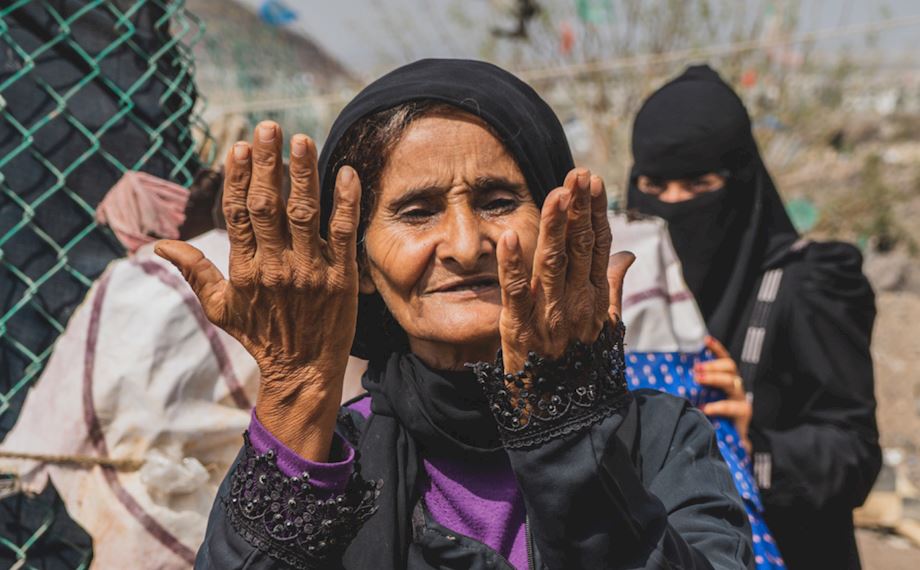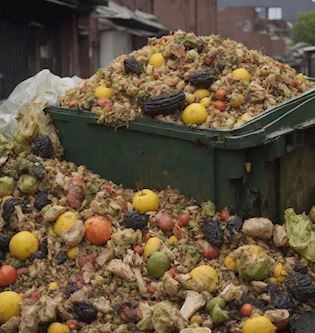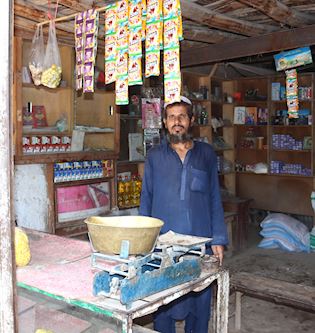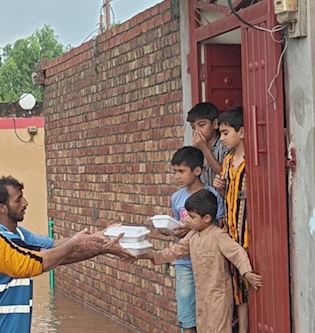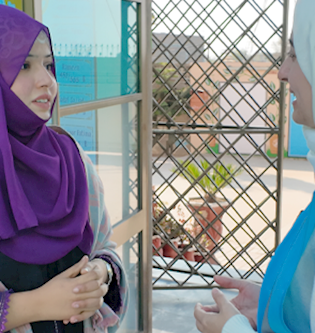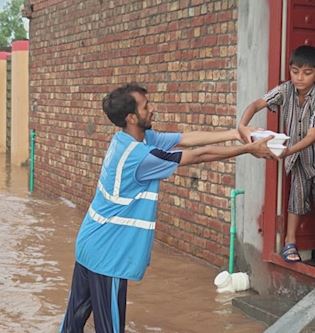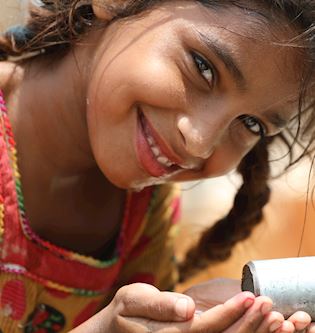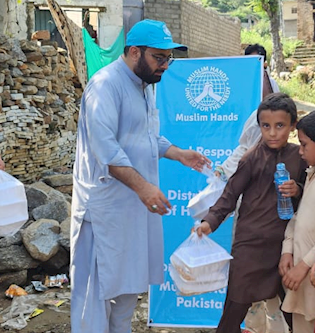Wudhu Is Not Enough To Prevent COVID19
Covid-19 the highly infectious novel coronavirus, declared a global pandemic by WHO, has brought the world to a standstill. When infected people usually suffer mild to moderate flu like symptoms, however severe cases can cause critical respiratory illness and even death. The Covid- 19 virus is usually transmitted through droplets of saliva and can live on surfaces for up to four days and in the air for up to three hours, which make it an easily transmitted disease.
To combat the spread of the virus, we are all being encouraged to practice social distancing and regularly wash our hands, with soap and water, for 20 seconds or more. A small hygienic practice can go a long way in keeping us clean and healthy.
Although as Muslims, we believe that our fate is ultimately in the hands of the Almighty it is essential that we all take the necessary precautions to prevent the spread of the virus.
The Prophet Mohammed (saw) is reported to have advised a Bedouin to ‘tie his camel first, and then put your trust in Allah’.
As Muslims we are required to maintain a high level of physical and spiritual purity. The Prophet Mohammed (saw) is narrated to have said that cleanliness is half of faith, and this is reflected in the performance of ablution rituals such as wudhu and ghusl.
Our religion requires us to perform wudhu at least five times a day, before each obligatory or voluntary prayer. We are expected to wash our bodies in a certain order, as done by the Prophet Mohammed (saw) - first hands, then mouth, nose, face, hair and ears, and finally ankles and feet.
However, in view of the Covid-19 pandemic, Muslim leaders around the world, have aligned their religious opinions with public health experts emphasizing that wudu alone cannot prevent the virus from spreading.
The Covid-19 pandemic affects us all and we all need to work together to beat it. The best way to do that is by following simple hygiene procedures to avoid being infected and avoid infecting others. We should carry soap and hand sanitizer with us and remember to wash our hands frequently for at least 20 seconds, even before performing wudhu.
Here are 8 steps you should follow when washing your hands to prevent spreading germs:
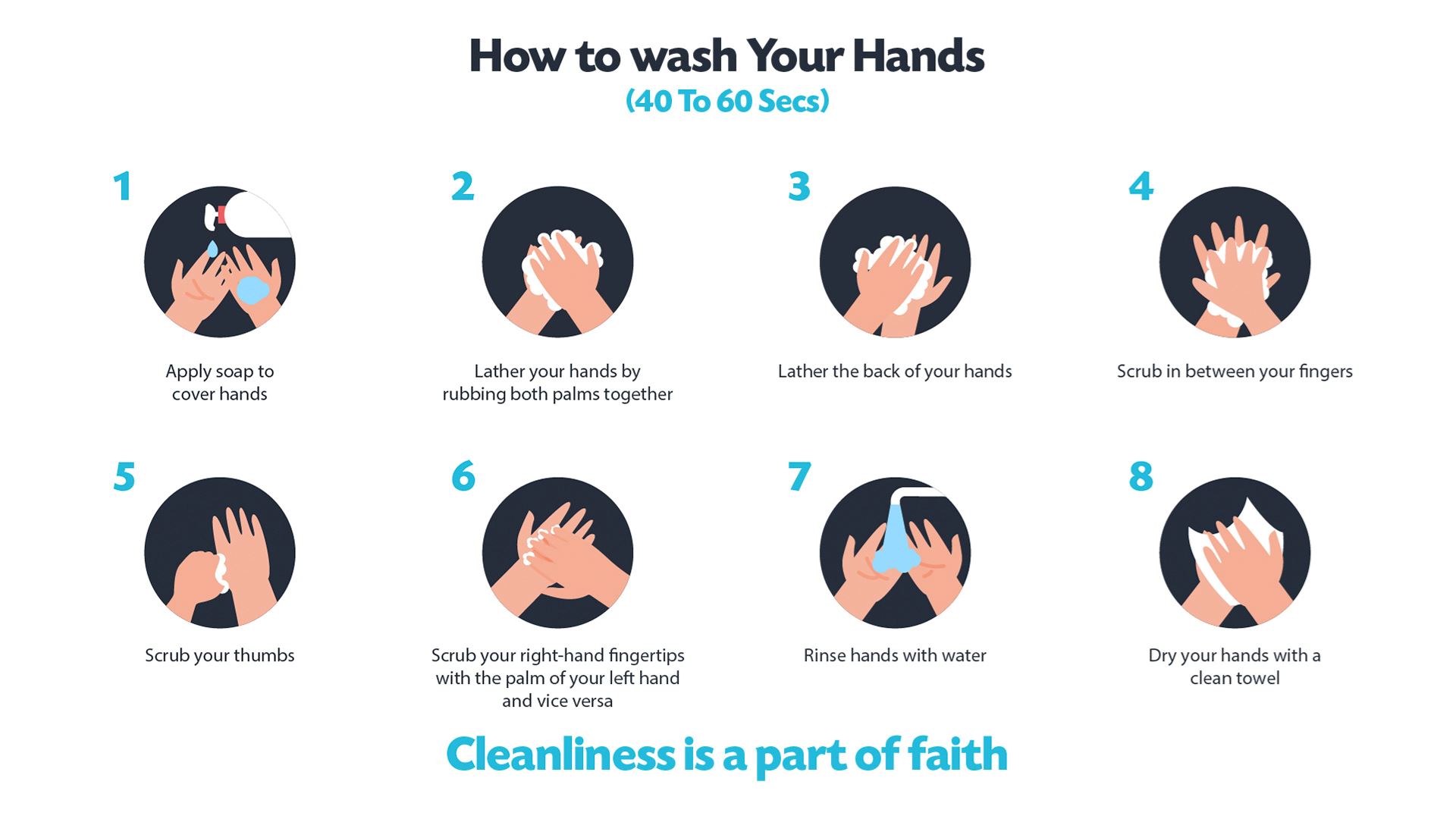
You should also wash your hands, before you eat or drink, when you come in from being outside and every time you touch a dirty surface or an area that is used often, like door handles, ATMS keypads and bin lids. Avoid dirty and unsanitary areas as much as possible, and do not eat food that has touched public surfaces or the floor.
Although stocks are running low on the market at the moment we are blessed to have access to hygiene products and clean running water, making our chances of battling the virus and protecting ourselves quite high. In developing countries that lack safe water and hygiene facilities people are not as lucky.
We are working hard to help stop the spread of Coronavirus in developing countries by distributing emergency hygiene kits and installing safe water systems. Help us support those most vulnerable to this pandemic by making a donation today.
Donate
Here are ways you can help





